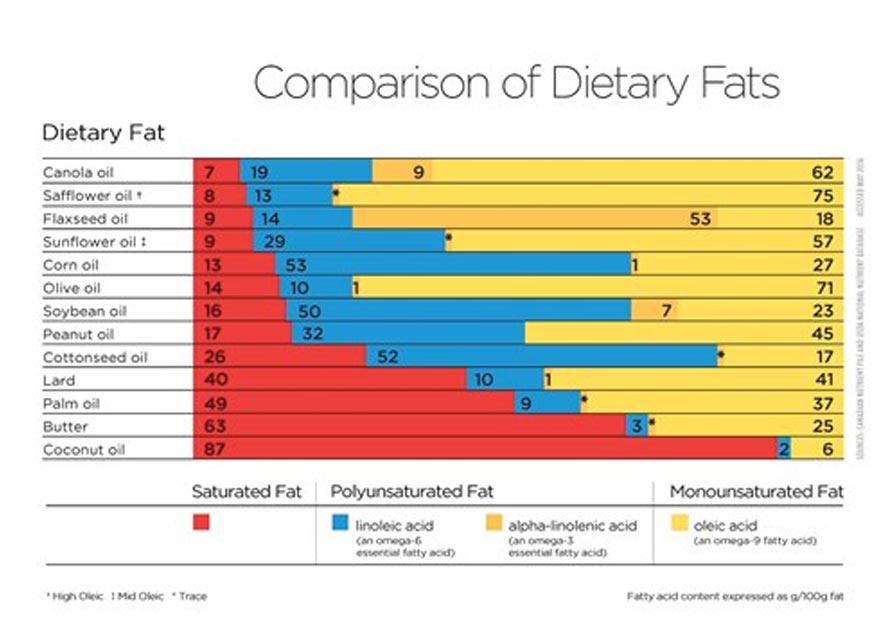USA Swimming News
Clearing the Confusion on Fat

by Chris Rosenbloom//PhD, RDN, CSSD
When it comes to dietary fats, confusion reigns. Recently, the American Heart Association issued a Presidential Advisory on dietary fats and cardiovascular disease (abbreviated CVD, which includes heart disease, blood vessel disease like high blood pressure, peripheral vascular diseases, and stroke). The paper reviewed more than 100 published studies on a variety of dietary fats and their relationship to risk of CVD. (The entire paper can be found online at http://circ.ahajournals.org/content/early/2017/06/15/CIR.0000000000000510).
The headline that got the most attention was on coconut oil and many parents have asked if they should abandon their jars of coconut oil for the health of their families. Coconut oil has been touted as a cure-all for everything and its popularity has risen to the point where a survey reported that about 70% of Americans think it is healthy fat.
Here is where the disconnect might be: coconut oil contains a small amount (13-14%) of fats called medium chain triglycerides (MCTs) and MCTs are handled differently by the body and have some positive health benefits. But, coconut oil is not 100% MCT; it is mostly saturated fat at more than 80%. Saturated fats, like coconut oil, butter, and palm oil, raise risk of CVD. Fats are made up of many different types of units called fatty acids…some, like saturated fats are less healthy than other fats, like mono-or polyunsaturated fats. A picture is worth a 1000 words, so the following chart from the Canola Council of Canada shows the composition of various fats. Yellow, orange, and blue are good; red, not so much.

So, when choosing an oil for your family meals, for a marinade, for salad dressings, in spreads, or other culinary applications, choose those oils at the top of chart most often and use those with a lot of red bars, sparingly.
Replacing saturated fats with polyunsaturated fats can reduce CVD by about 30% and that is good news. Remember, the key word in that sentence is replace; so, coconut oil, butter, palm oil, or lard is your go-to fat, move to replace it with polyunsaturated oils.
One mom simply said, “what oil do you use?” I told her I always have 3 oils in my kitchen: canola oil for everyday cooking, olive oil for sautéing or roasting vegetables, and peanut oil for making a stir-fry.
Chris Rosenbloom is a registered dietitian, certified specialist in sports nutrition, and professor emerita of nutrition at Georgia State University. She welcomes questions from swimmers, parents and coaches. Email her at chrisrosenbloom@gmail.com; follow her on Twitter @chrisrosenbloom
(I recently attended a sponsored trip to visit canola fields in Saskatoon, Canada, and learn about how canola is grown and processed into oil. Some of my friends were surprised when I told them that the word canola is derived from Canada and oil (the oil of Canada). I was not paid to write this article, nor was I asked to do so).
